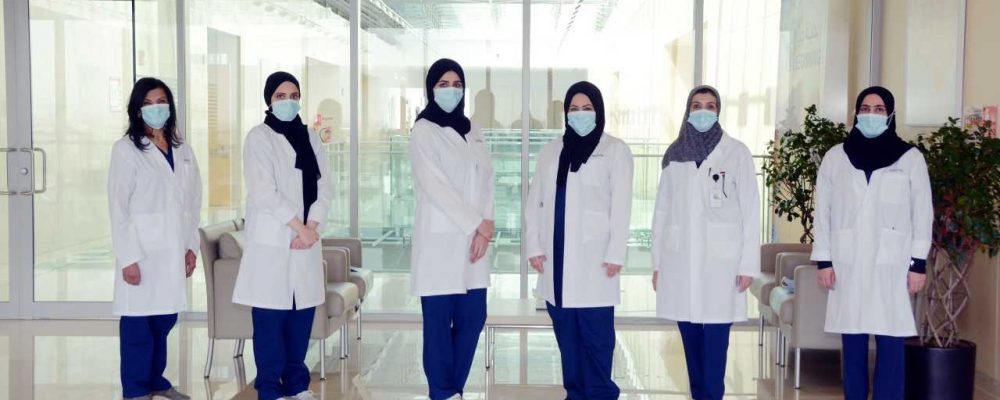Sheikh Shakhbout Medical City (SSMC), along with a joint-venture partnership between Abu Dhabi Health Services Company (SEHA) and Mayo Clinic, is marking Colon Cancer Awareness Month this March with the launch of a campaign to encourage women to undergo colonoscopies for early diagnosis and stronger prognosis.
As part of the ‘Where Women Take Care of Women’ campaign, seven female endoscopists are spearheading the practice of colonoscopies for female patients, increasing their reassurance and ensuring they are comfortable throughout the entire process.
As per the ‘Abu Dhabi Health Statistics 2017’ report by the Department of Health – Abu Dhabi, colon cancer is the third leading cause of cancer-related deaths in the Emirate, with it prevailing in males as the leading cause of death compared to other cancers, and fourth for women following breast, ovary and bronchus and lung cancers.
Dr. Michael Wallace, consultant hepatologist and gastroenterologist and division chair of Gastroenterology and Hepatology, SSMC, said, “There is a common misconception that colon cancer only affects males, this is statistically and biologically not true. Females are also prone to colon cancer and should be encouraged to undergo regular colonoscopies.”
Colonoscopy is the exam used to detect changes or abnormalities in the large intestine (colon) and rectum. During a colonoscopy, a long, flexible tube (colonoscope) is inserted into the rectum. A tiny video camera at the tip of the tube allows the doctor to view the inside of the entire colon. If and when necessary, polyps – a small clump of cells that form on the lining of the colon and that can develop into colon cancer – and other types of abnormal tissue, can be removed through the scope.
Several international studies explore the preference of provider gender in endoscopy, the results of which highlight that due to the uncomfortable nature of endoscopies in general, female patients are more likely to factor gender when choosing their physicians, most often choosing female physicians. This has been further cemented in a Middle East based article recently published in the Gastrointestinal Endoscopy Journal, which indicates that the cultural stigma around gastroenterological procedures and their nature of being inherently invasive and involving intimate body areas have shown to enhance patient preference for provider gender concordance. Endoscopic procedures are also likely to provoke fear and embarrassment, which have proven to be potential barriers to care.
“Females above the age of 40 must be regularly completing colonoscopies to detect any abnormalities earlier, drastically improving their prognosis. By realising and acknowledging that a significant proportion of women patients prefer women endoscopists, we are transforming patient care to create an optimal, comfortable environment for females to prioritise their health and wellbeing,” continued Dr. Wallace.
Males and females above the age of 40 are encouraged to undergo a colonoscopy every 10 years. Those who present with pre-existing gastrointestinal diseases like irritable bowel disease must undergo a colonoscopy every eight years, while those with family history of colon cancer must complete the exploratory exam every five years.
Dr. Noura Al Ali, general and colorectal surgery consultant, SSMC, said, “Throughout my career, I have always noticed how stiff and nervous female patients get when I mention the word colonoscopy. While they recognise the importance of the procedure in early detection and the removal of pre-cancerous material like polyps and other types of abnormal tissue, the process itself makes them uncomfortable and embarrassed.
“It is our responsibility as their health care providers to adopt a caring, empathetic, and compassionate approach to ensure they agree to the procedure and are comfortable throughout. The simplest method of ensuring female patients adhere to regular colonoscopies is by making sure the person conducting the procedure is of the same gender and is completely understanding of their concerns.”
“Regular screening exams are integral in the detection and removal of precancerous growths, as well as early-stage cancers. We are doing our part in easing the procedure for our patients by guaranteeing gender preference and encourage female patients from across the nation to prioritise their wellbeing, comfortable in the knowledge that their every medical and cultural need will be taken care of,” concluded Dr. Wallace.




